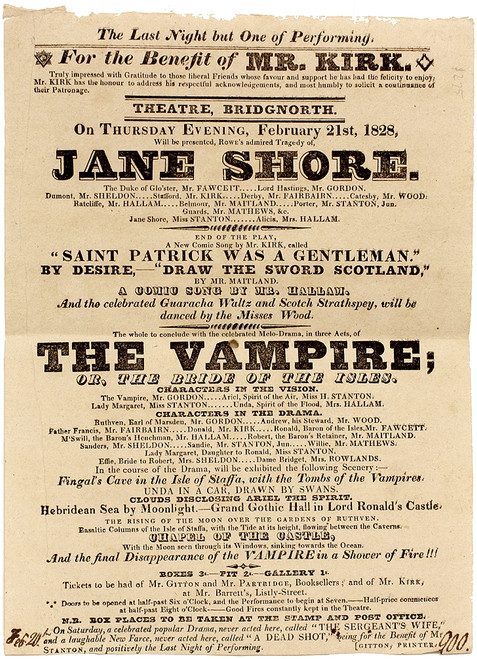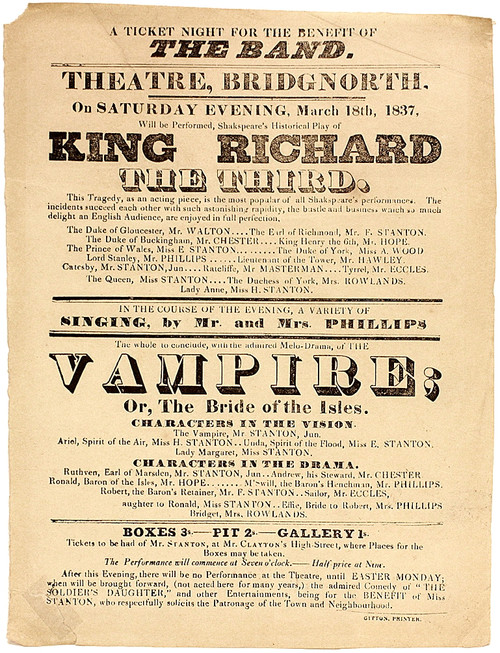
PLANCHE, James Robinson: Pierre-Frederic-Adolphe Carmouche. The Vampire; or, Bride of the isles, A Tale, founded on the popular superstition of Caledonia.... (1820 - FIRST AND ONLY EDITION)
- SKU:
- 001904
- Shipping:
- Free within the US $45 flat rate international
AUTHOR: PLANCHE, James Robinson: Pierre-Frederic-Adolphe Carmouche.
TITLE: The Vampire; or, Bride of the isles, A Tale, founded on the popular superstition of Caledonia.... From which is taken the much-admired piece of that name now performing with unbounded applause at the English Opera House in the Strand.
PUBLISHER: London: Printed and Sold by J. Bailey, n.d., (1820)
DESCRIPTION: FIRST AND ONLY EDITION. 1 vol., 6-7/8" x 4" (i)24pp., complete with the hand colored frontis, internally clean and bright, bound in 1/4 maroon morocco, vertical gilt lettered spine.
CONDITION: Hinges fine, overall VERY GOOD.
ADDITIONAL INFORMATION: A very good copy of a very scarce edition of "The Vampire". OCLC locates only 3 copies held by institutions. One in the U.S. and two in the UK. According to RBH & ABPC only 1 copy of this edition has ever appeared at auction.
Within a year after "The Vampyre" was published, the Vampyre Ruthven became hugely popular throughout western Europe. By June of 1819, he was already onstage at the Theatre de la Porte-Saint-Martin (Paris) in a melodrama called "Le Vampire", written by Charles Nodier.
The title-page has a 10 line quotation stating "Lord Byron's description of a vampire". This is an adaptation of the French play by Charles Nodier, The book is itself an adaptation of the extremely popular 1819 short story by Dr Polidori, Lord Byron’s traveling doctor. It is said that the character of the protagonist vampire, Lord Ruthven, was based on the wild lifestyle of Lord Byron and the character from the original book was used in adaptations by a number of authors at the time. This English reworking for the stage was undertaken by James Robinson Planché (1796–1880), playwright and herald. At least four other stage adaptations of the book were written during 1820. Widely regarded as the exception to Planche’s earlier unexceptional writing, The Vampire, or, The Bride of the Isles, created a stir at the Lyceum (then called the English Opera House) in August 1820. The play was heralded for its use of the innovative ‘Vampire trap’ which enabled the protagonist to emerge in a dream, and later disappear as the earth is destroyed.







